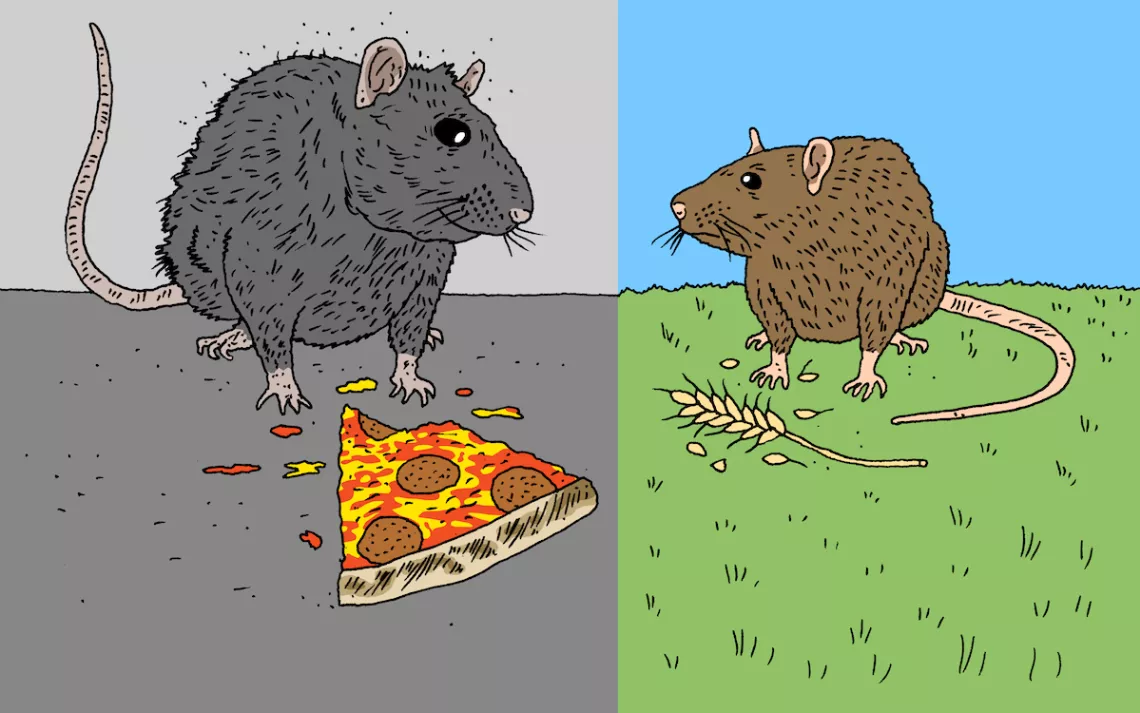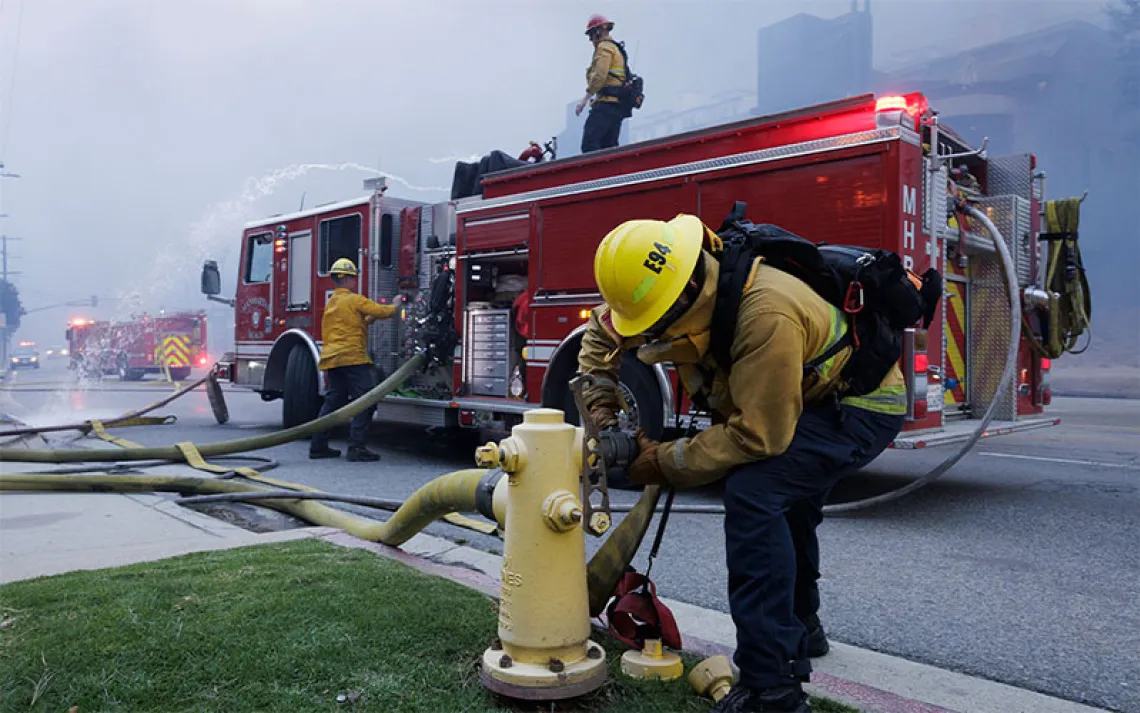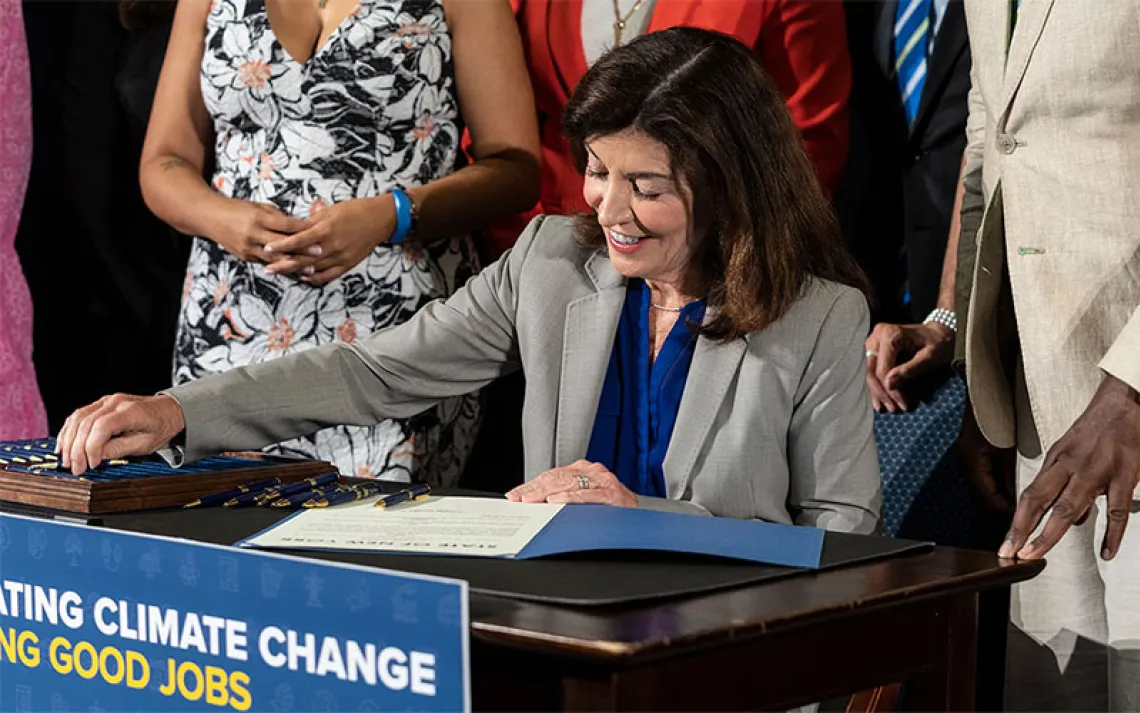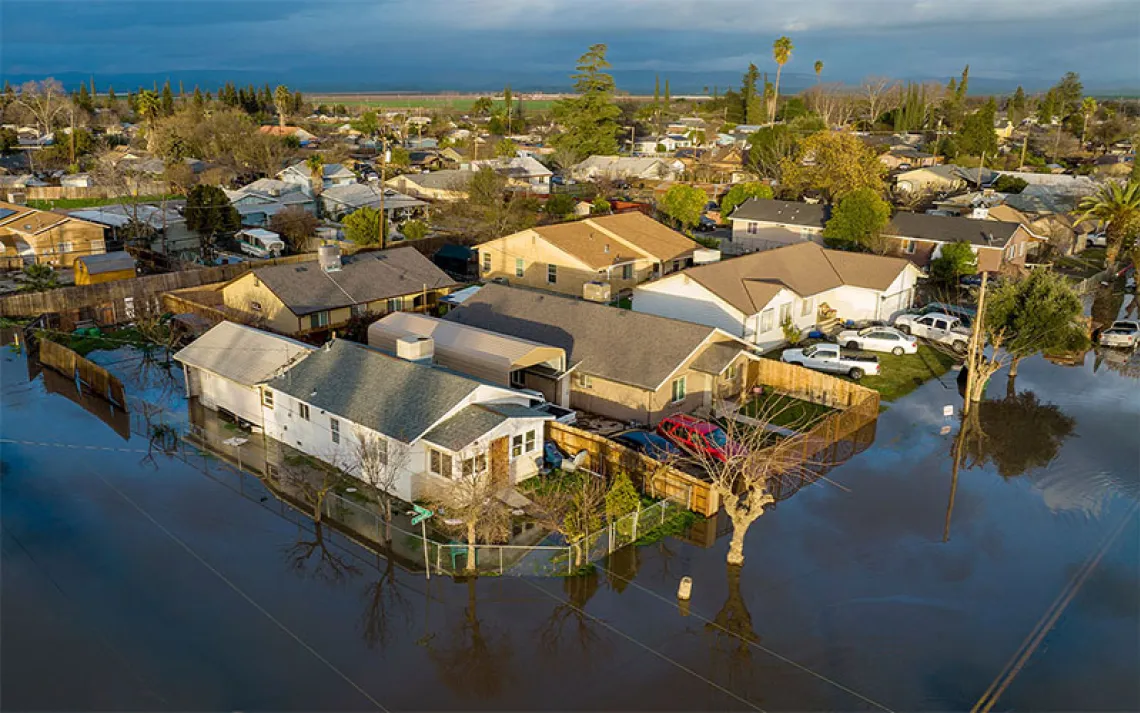ICYMI: City Rat/Country Rat, Fire and Flood & Murder Hornets Are Back
A weekly roundup for busy people

Illustration by Peter Arkle
Urban mammals—such as rats—are growing significantly larger than their country cousins.
Giant tortoises hunt and eat birds (grisly video).
A tropical wood stork finds its way to a marsh near an Amazon warehouse on Staten Island, but dies after eating a large piece of hardened foam.
July 2021 was the hottest month ever recorded.
Massive wildfires in Siberia release as much carbon into the atmosphere as Germany does in a year.
Drought is wiping out juvenile salmon in California’s Klamath River, a disaster for the Yurok people.
The 2,325-acre ancestral home of the Maidu people in California’s northern Sierra Nevada, only returned to the tribe in 2019, burns in the Dixie Fire.
Researchers discover that the ranges of three genetically different populations of grizzly bears on the central coast of British Columbia align with three First Nations language families—the Tsimshian, Northern Wakashan, and Salishan Nuxalk.
Charles Sams III becomes the first Indigenous head of the National Park Service.
Monsoon rains in Arizona destroy a section of Trump’s border wall, tearing floodgates off their hinges.
Texas uses more than a third of its clean air funds to widen highways.
The Fish and Wildlife Service grants endangered species protection to Franklin’s bumblebee, a species that has not been seen in 15 years.
Danish shipping giant Maersk orders eight large container ships powered by “carbon neutral e-methanol or sustainable bio-methanol.” The ships will reportedly save a million tons of carbon a year.
The EPA bans the toxic pesticide chlorpyrifos.
A nest of “murder hornets” is discovered in Washington State.
The six giant smokestacks of the decommissioned Colbert Fossil coal-fired power plant in Tuscumbia, Alabama, are brought down in a controlled explosion (dramatic video).
 The Magazine of The Sierra Club
The Magazine of The Sierra Club



